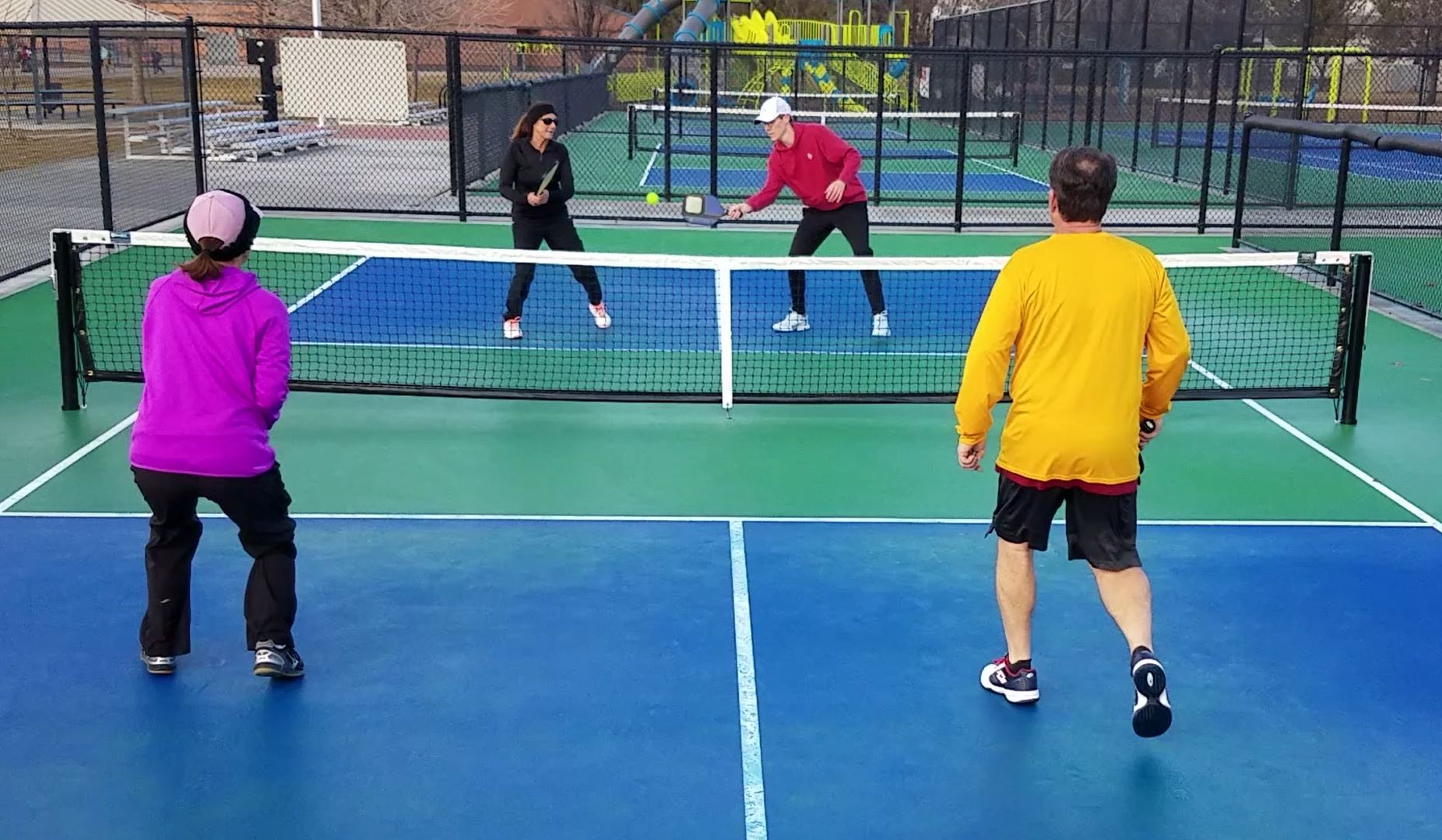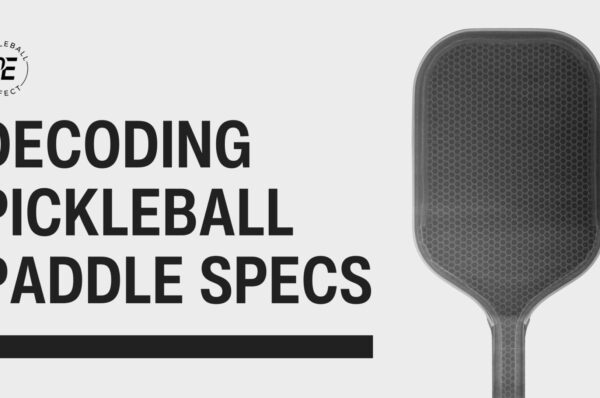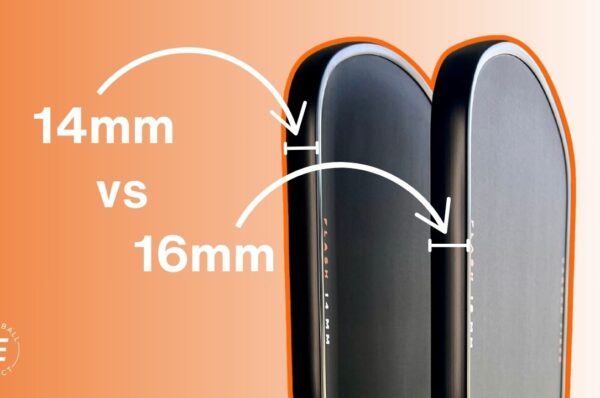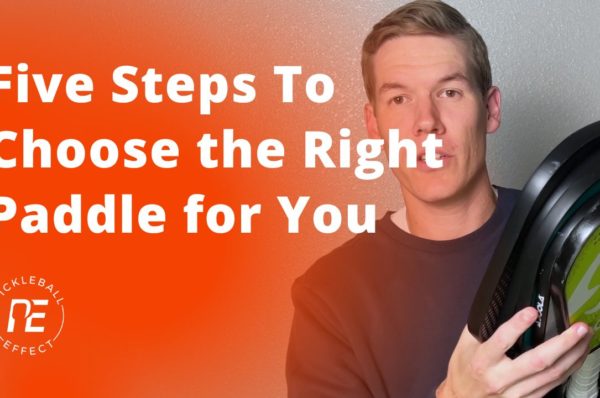I’m glad you decided to learn how to play pickleball. It’s growing fast and is a lot of fun to play. There are lots of rules and strategies, but not everything matters when you are just getting started. So, I put together this no fluff beginner guide with all the pickleball rules you need to know to play your first game.
Pickleball Terms
Here are few essential terms you need know to understand the rules and gameplay described below. You’ll also hear these words tossed around on the courts, so it will help you comprehend what others are saying to you as well.
Rally: A rally starts with a serve and ends when the ball goes out of play. At the end of a fun rally, a person might congratulate the other team by saying, “nice rally”.
Volley: A volley is when you hit the ball out of the air before it bounces.
No-Volley Zone: The no-volley zone is the section of the court closes to the net. It extends 7 feet on each side of the net. More to come on this.
Drop: A drop or a drop shot is a common term and shot used in pickleball. The drop shot is a soft, arching shot taken anywhere on the court (other than at the no-volley zone line) that is intended to land softly in your opponents no-volley zone.
Drive: A drive is shot that is hit hard with little to no arch. It’s the opposite of a drop shot.
Dink: A dink is a shot taken when standing at the no volley zone line and is hit softly over the net and lands in your opponents no-volley zone. The goal of a dink is to prevent your opponents from attacking the ball and forcing them to hit it back softly.
Fault: When the ball goes out of play or some other rule is broken, then it is called a fault.
Pickleball Court Dimensions & Description
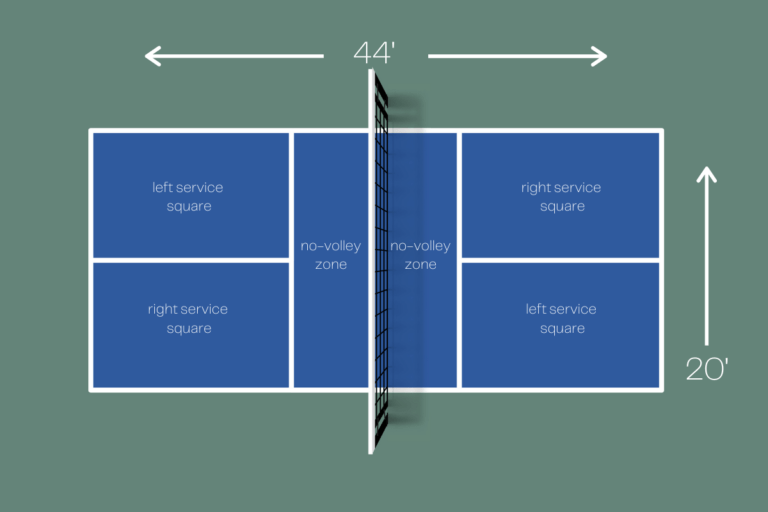
Image Source: https://alliedproductsllc.com/racquetball-court-construction/pickleball-court/
You may have seen a pickleball court before, but let’s review some of the key components of the court and learn what everything is called and what function it performs.
Baseline: The short ends of the court are called the baseline. Any ball that is hit past the baseline before it bounces is considered out of play.
Sideline: The longer ends of the court are called the sidelines. Any ball that is hit wide of the sidelines before it bounces is considered out of play.
Service Squares: The service squares are used when serving the ball, more on this later in the serving section of this article.
No-Volley Zone (NVZ): The NVZ is often called The Kitchen. You cannot be standing in the NVZ and hit the ball unless the ball bounces in there first. If a player is standing in the NVZ (that includes the line) and hits the ball before it bounces is considered a fault and the other team wins the rally.
You can only step into the NVZ and hit the ball when the ball bounces in their first.
It’s a common misconception that you cannot step into NVZ until after it bounces in their, but you can step into the NVZ at any time, it is only a fault if you volley the ball while standing in the NVZ.
General Rules
- Games are played to either 11 or 15
- You can only score on your serve
- You only get one hit to return it to the other side
- You must let the serve and return of serve bounce before you can hit it. This is known as the two-bounce rule.
- The ball can only bounce once before you or your teammate have to return it
- Balls that hit the baseline or sideline are considered in play
- In doubles pickleball, each team gets two serves. Except to start the game, the serving team only gets one serve. Watch the video above for a video example of what this means.
Scoring
Ways a rally ends:
- The ball is hit out of bounds
- The ball hits a player (the team with the player that was hit loses the rally)
- The ball is hit into the net (if the ball tips the top of the net but lands on the other side and inbounds, then it is good)
- The ball bounces twice before it is hit (the first bounce must be in play)
Serving
- Your feet must be behind the baseline and within the service box lines when contact is made with the ball
- It must be hit crosscourt
- It must land in the crosscourt service box (the NVZ and NVZ line are considered out on the serve)
- You only get one attempt
- The serve must be hit underhand
- Contact with the ball must be at or below the belly button
- You can drop the ball from your hand and hit it out of the air, or you can drop the ball from your hand and let it bounce before you hit it
Say the Score Before You Serve
At the start of the game, the server will say 0-0-2 because the serving team only gets one server to start the game.
Two-Bounce Rule
Summary
I sincerely hope you enjoy playing and that my video and explanation of the rules helped get you started! Like any game, it takes a couple of times of actually playing until you internalize the rules and can play without thinking about them. You’ll get there!
For more advanced strategy and tips, check out our strategy and tips section. And if you are hunting for some new equipment, check out our paddle reviews.

